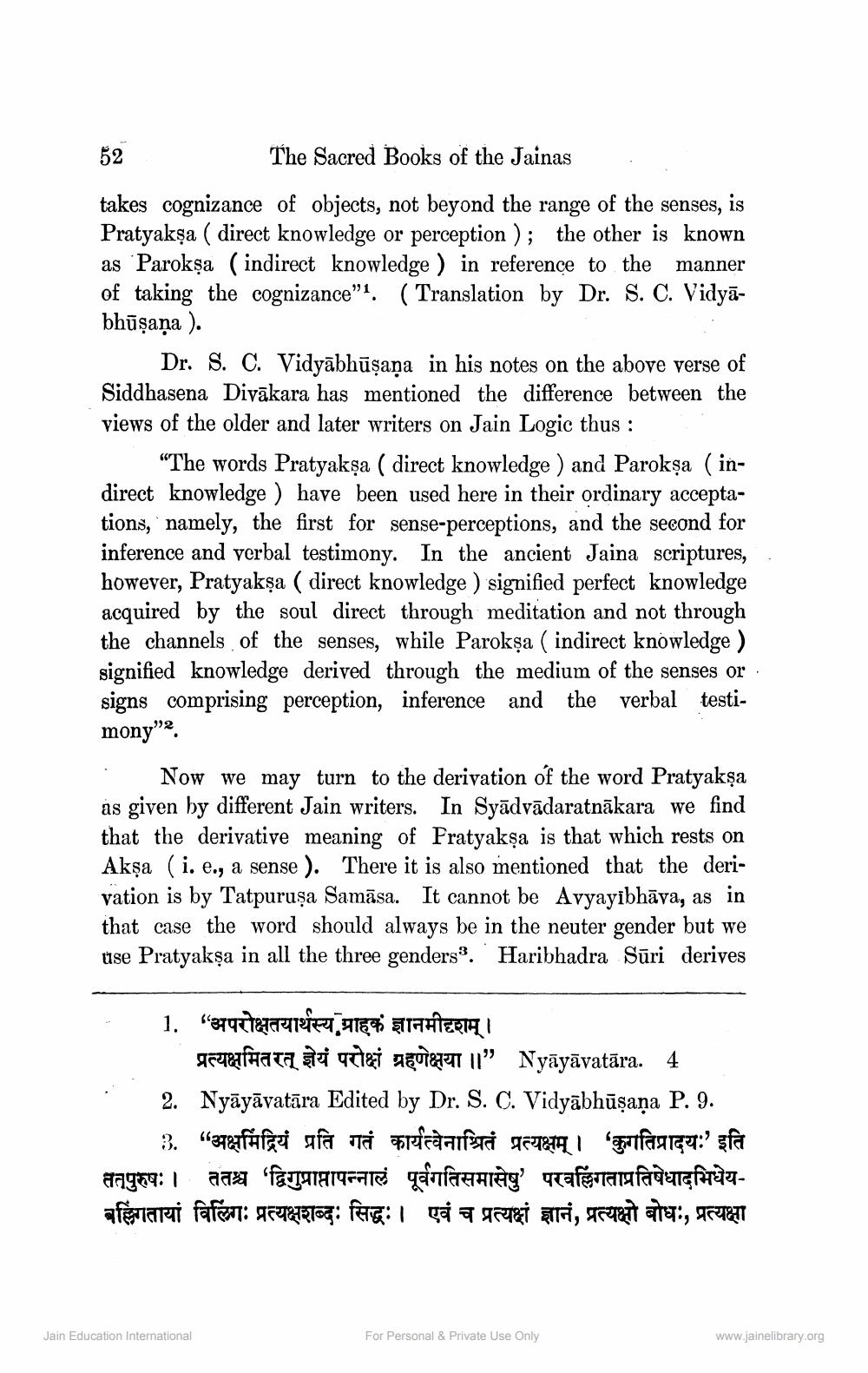________________
52
The Sacred Books of the Jainas takes cognizance of objects, not beyond the range of the senses, is Pratyakşa ( direct knowledge or perception ); the other is known as Parokşa (indirect knowledge ) in reference to the manner of taking the cognizance". (Translation by Dr. S. C. Vidyābhūşaņa ).
Dr. S. C. Vidyābhūsana in his notes on the above verse of Siddhasena Divākara has mentioned the difference between the views of the older and later writers on Jain Logic thus :
"The words Pratyakşa ( direct knowledge ) and Parokşa (indirect knowledge ) have been used here in their ordinary acceptations, namely, the first for sense-perceptions, and the second for inference and verbal testimony. In the ancient Jaina scriptures, however, Pratyakşa ( direct knowledge ) signified perfect knowledge acquired by the soul direct through meditation and not through the channels of the senses, while Parokșa ( indirect knowledge ) signified knowledge derived through the medium of the senses or signs comprising perception, inference and the verbal testimony”. . Now we may turn to the derivation of the word Pratyakşa as given by different Jain writers. In Syādvādaratnākara we find that the derivative meaning of Fratyakşa is that which rests on Akşa (i. e., a sense ). There it is also mentioned that the derivation is by Tatpuruşa Samāsa. It cannot be Avyayibhāva, as in that case the word should always be in the neuter gender but we use Pratyakşa in all the three genders. Haribhadra Sūri derives
1. OBTOTTATTET. ITER ETTAHERTHI
gratefHata TIET DEU2477 11" Nyāyāvatāra. 4 2. Nyāyāvatāra Edited by Dr. S. C. Vidyābhūşaņa P. 9.
3. Bertalana afa vei pricaarfri EFTATA 1 fanga:' sfat तत्पुरुषः। ततश्च 'द्विगुप्राप्तापन्नालं पूर्वगतिसमासेषु' परवल्लिंगताप्रतिषेधादभिधेयबल्लिंगतायां विलिंगः प्रत्यक्षशब्दः सिद्धः। एवं च प्रत्यक्ष ज्ञानं, प्रत्यक्षो बोधः, प्रत्यक्षा
Jain Education International
For Personal & Private Use Only
www.jainelibrary.org




